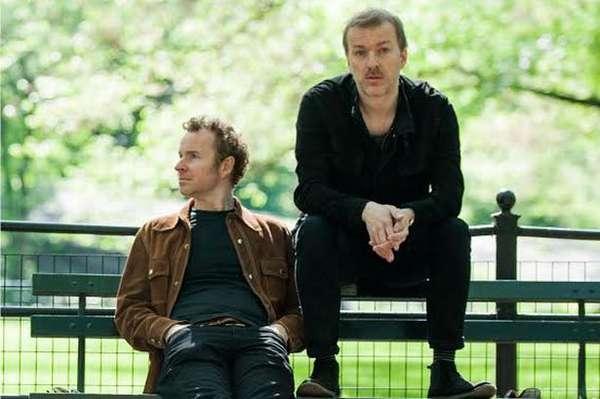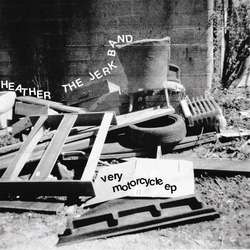For the last few years any musical output with brothers Jez and Andy Williams at the helm has sounded otherworldly, like it's trying to capture some impossible-to-comprehend expanse that stretches beyond the atmosphere. As two-thirds of Mancunian outfit Doves, there was ready admittance between all three band members that when they were working on tracklists for their albums they would all drive, separately, to nowhere in particular, and more than once they all coincidentally reconvened at the Jodrell Bank Observatory in Cheshire, home to numerous radio telescopes exploring and monitoring the atmosphere beyond earth, and, more recently, doubling up as an occasional concert venue.
There's always a risk involved when bands go their separate ways (albeit an indefinite hiatus, such as in the case of Doves) and erstwhile band members get involved in new projects. There's the chance that this new freedom to pursue the ideas that have been in the back of a band member's mind for many years, when finally given an opportunity to flourish, will fall flat. That some of the original spark they had will be gone, that some things will get lost in translation. On their eponymous debut, Black Rivers manage to evoke the psychedelic haze that was characteristic of their songs in Doves, but they clearly manage to carry this through an album's worth of songs, which is either surprising or to be expected depending on your point of view.
Jez was the guitarist and sometime singer of Doves, while Andy was the drummer who also occasionally dabbled in singing. On the songs in Doves' output where the Williams' brothers were at the controls you could always easily deduct that it was one of their songs, imbued with distant vocals and electronically-focused fervour. On Black Rivers they fully indulge in their slightly mystical, always forward-looking sound with some impressive results.
Recorded in a cottage on Anglesey, an island just off Wales, there's something about the swirling electronic sound that fuses Black Rivers together that makes it sound like it's somehow tangled up in physics and astronomy. It's explorative, it's limitless and it seems to be concerned with flexing as many muscles as possible just to see what happens. The European strains on "Coral Sea" as Jez sleepily intones "This love is such a mystery", the haunted harmonies alongside some trippy guitar work on instrumental interval "Beyond The Pines", and the climactic "Wind That Shakes The Barley", where the electronic musos let the drumming come to the fore, shows a band who aren't afraid to explore and create. Even if this creative enthusiasm takes some missteps, such the unfathomable "Harbour Lights", where we're led down a narrow corridor with a French-speaking chanteuse accompanied by rolling drum beats crawling up the walls in-between whispers, at least it's something different.
As Black Rivers comes to a close, the synthesiser-heavy tumult of the rest of the album is muted. Instead, the comparable simplicity of "Deep Rivers Run Quiet" is flanked by piano keys, guitars and Jez's dulcet tones. There's some real finesse here that takes a while to take hold. It's not a record for immediacy, and it takes a few listens to fully appreciate the work on this album. Black Rivers is a rewarding listen when you really scratch away at it. While it's not any kind of vessel for discovery in the same vein as the Lovell telescope in Jodrell Bank, there's still something altogether charmingly distant and unique about Black Rivers to be found here.






